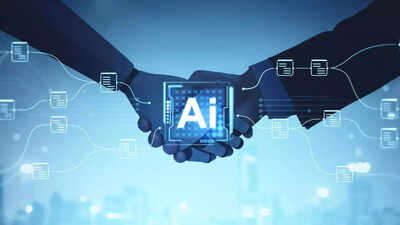ARTICLE AD BOX

Goldman Sachs chief information officer (CIO) Marco Argenti believes professionals can succeed in the AI-driven workplace by focusing on collaboration and questioning rather than competing with machines.
In a recent company Briefings newsletter (as seen by Fortune), Argenti outlined four strategies on how employees can "Get the Most Out of AI in Your Career" as autonomous systems take on tasks previously reserved for humans. Argenti's advice centres on adapting to the AI transition by learning how to conduct, question, and collaborate with the new technology. This approach is intended to help professionals thrive as AI reshapes workplaces globally. In the newsletter, Argenti wrote: “Your ability to manage a hybrid team of human and AI resources will play an essential role in the success of the company’s employees."
4 tips Marco Argenti shared with Goldman Sachs' employees
Argenti suggests that today’s professionals need to shift from simply executing tasks to coordinating them. Success, he explains, will depend less on individual output, such as writing code or performing analysis and more on managing agile teams composed of both human and AI contributors. Effective leadership will involve delegating, coordinating, and integrating their work to achieve outcomes that neither could reach alone.
According to Argenti, curiosity is one of the most valuable human abilities in an AI-driven world. He encourages employees to “get creative with AI, posing provocative, non-obvious questions.” While AI systems are strong at processing existing information, they rely on human curiosity to spark new ideas. By asking imaginative, unconventional questions, people can help AI move beyond familiar patterns and reveal deeper insights. “While AI excels at refurbishing existing knowledge its true creative potential is unlocked by human curiosity," Argenti wrote.Argenti also recommends that professionals use a mix of AI tools tailored to specific tasks rather than relying on a single platform. No one model performs best in every situation, he notes. The advantage lies in understanding which tools are most effective for particular purposes, such as data analysis, writing, or coding and combining them into a personalised digital toolkit. “The expert will curate a personal toolkit of models and assistants and know[s] which one to deploy for which task," he explainedArgenti further warns that even advanced AI systems can generate “plausible-sounding errors.” As these tools become more integrated into work processes, checking their accuracy will require domain expertise and careful evaluation. “A blend of deep knowledge and a detective’s scepticism,” he writes, will help distinguish reliable insights from misleading ones.Argenti concludes that AI is not replacing human ability but changing how it is defined. The future, he says, will favour those who combine technical understanding with creativity, critical thinking, and leadership qualities that remain uniquely human.

 3 hours ago
3
3 hours ago
3









 English (US) ·
English (US) ·